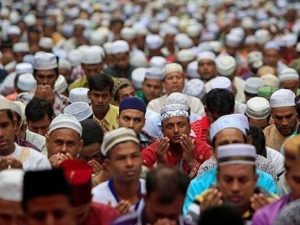The Muslim organization in India is against the government’s plan to make all religions subject to the same civil laws.
Uniform Civil Code, according to Jamiat Ulama-e-Hind, is diametrically opposed to the principle of religious liberty.

In a statement released on Monday, India’s largest socioreligious Muslim organization criticized the government’s decision to seek public and religious organizations’ opinions on the Uniform Civil Code, which would make all citizens subject to the same set of civil rules regardless of where they lived or what religion they practiced.
The Jamiat Ulama-e-Hind issued a statement saying that the organization will protest the Uniform Civil Code within the legal framework since it violates religious freedom and fundamental rights granted to citizens in Articles 25 and 26 of the Constitution.
When the Law Commission of India first proposed changes to Islamic laws in 2018, Muslims strongly complained, especially regarding changes to Islamic divorce laws, which are governed by the civil code. In its Consultation Paper on “Reform of Family Law,” the committee concluded that “forming a Uniform Civil Code (UCC) is neither necessary nor desirable at this stage.”
Read more about how the BJP plans to target Muslims in India in a manner similar to that which was used against the Jews in Nazi Germany.
However, on June 14 the committee requested feedback on the civil code from the general public and recognized religious groups.
Jamiat Ulama-i-Hind strongly opposes the most recent government action and sees it as part of a larger effort to erode individuals’ religious freedom and the Constitution’s founding ideals.
The Indian Constitution states, “There is no official religion for the Indian state, and it gives complete freedom to all its citizens.” This means that individuals in India are free to practice whatever faith they please.
The statement argued that the government’s idea of imposing the civil code seems to “use Article 44 of the Constitution under the guise of keeping a particular sect in mind to mislead the majority” in a pluralistic society like India, where followers of different religions have been living in peace and unity following the teachings of their respective religions for centuries.
Maulana Arshad Madani, president of the Jamiat Ulama-e-Hind, said that this is an issue for all Indians, not only Muslims, and vowed that religious freedom and worship would not be compromised.
And it’s unpalatable to Muslims and harmful to national unity and integrity, he said, therefore it violates the Constitution’s basic protections.









































